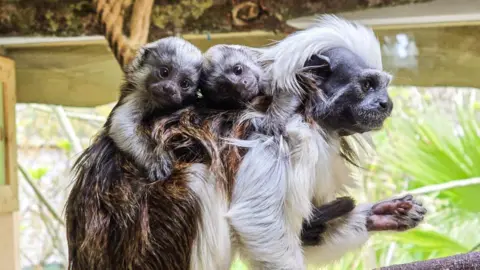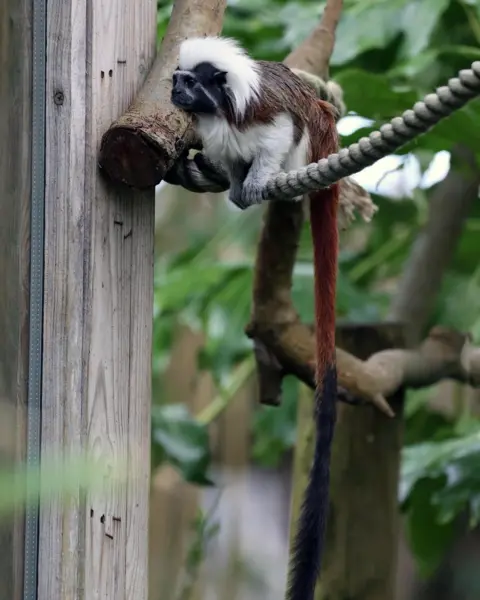Rare primate twins being co-parented at zoo
 Wild Planet Trust / NEWQUAY ZOO
Wild Planet Trust / NEWQUAY ZOOA pair of critically-endangered primates were born at a Cornish zoo last month, keepers have said.
The twin cotton-top tamarins were born at Newquay Zoo to first-time parents Febe, 2, and Santiago, 3 who moved there in 2023, and have taken on co-parenting duties, the zoo said.
The species is native to northern Colombia and among the most at-risk primates in the world with fewer than 2,000 individuals believed to live in the wild.
Senior animal keeper Emma Sweetland said: "These twins are not just adorable additions to our zoo family, they represent a vital step forward in the fight against species extinction."
The palm-sized twins each weighed about the same as a chicken egg at birth.
 Wild Planet Trust / NEWQUAY ZOO
Wild Planet Trust / NEWQUAY ZOOMs Sweetland said: "It's incredibly special to see Febe and Santiago co-parenting so naturally.
"Their attentiveness is heart-warming, and these births are a significant milestone for the conservation of this critically endangered species."
In the wild, cotton-top tamarins live in "tightly-bonded social groups where the care of young is a shared responsibility" known as cooperative care, the zoo said.
The tamarins are named after their crown of fluffy white hair which stands on end when they get excited.
They are listed as critically endangered - the most at-risk category - on the Red List, a list of the conservation status of all species compiled by the International Union for Conservation of Nature (IUCN).
Follow BBC Cornwall on X, Facebook and Instagram. Send your story ideas to [email protected].
